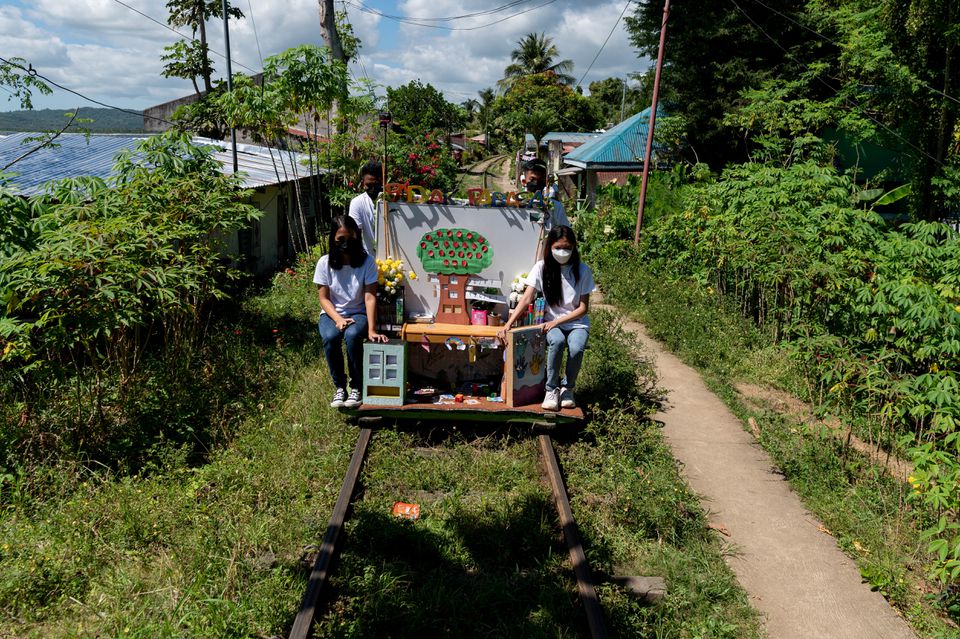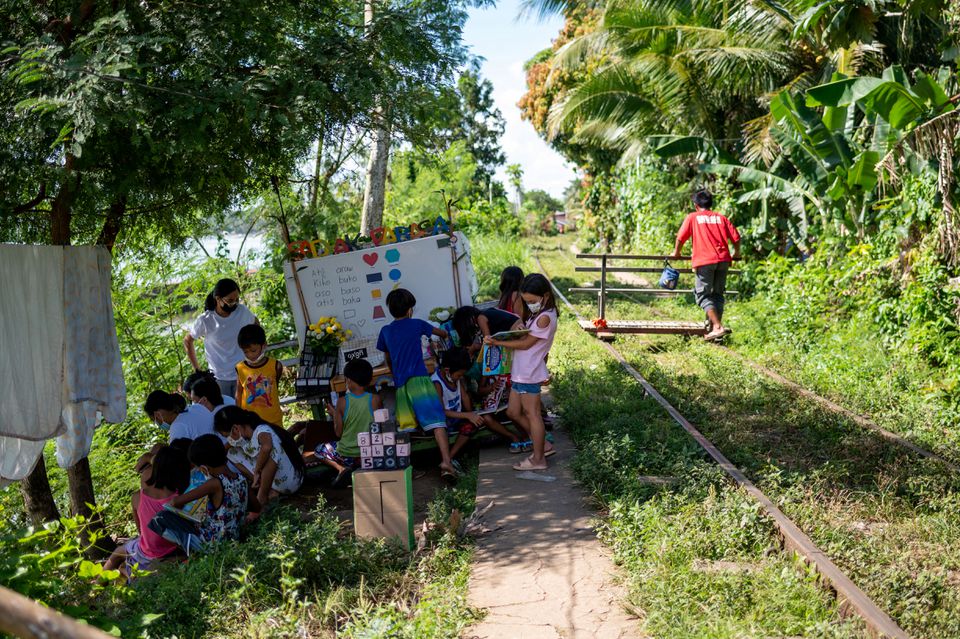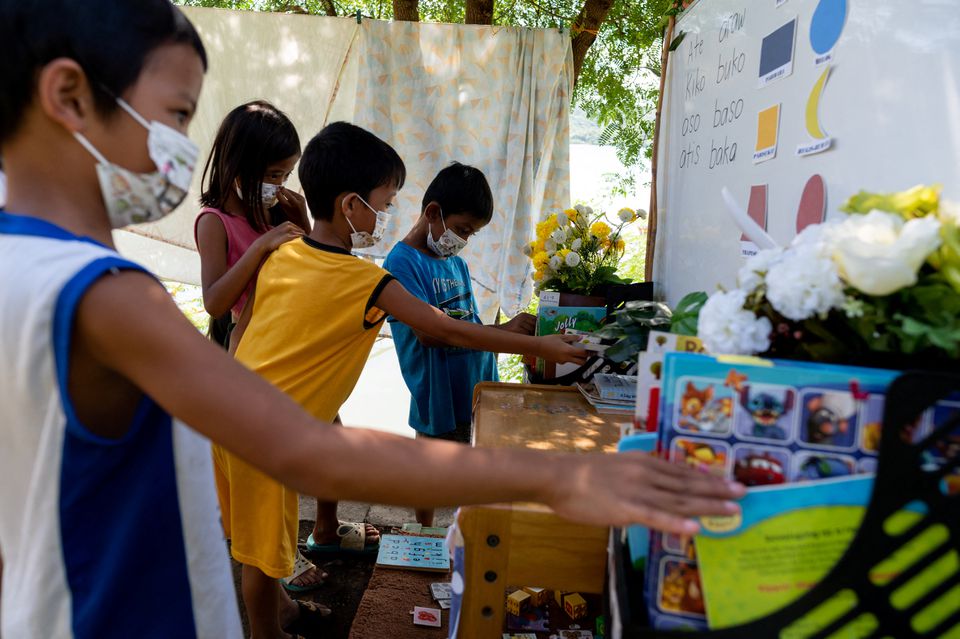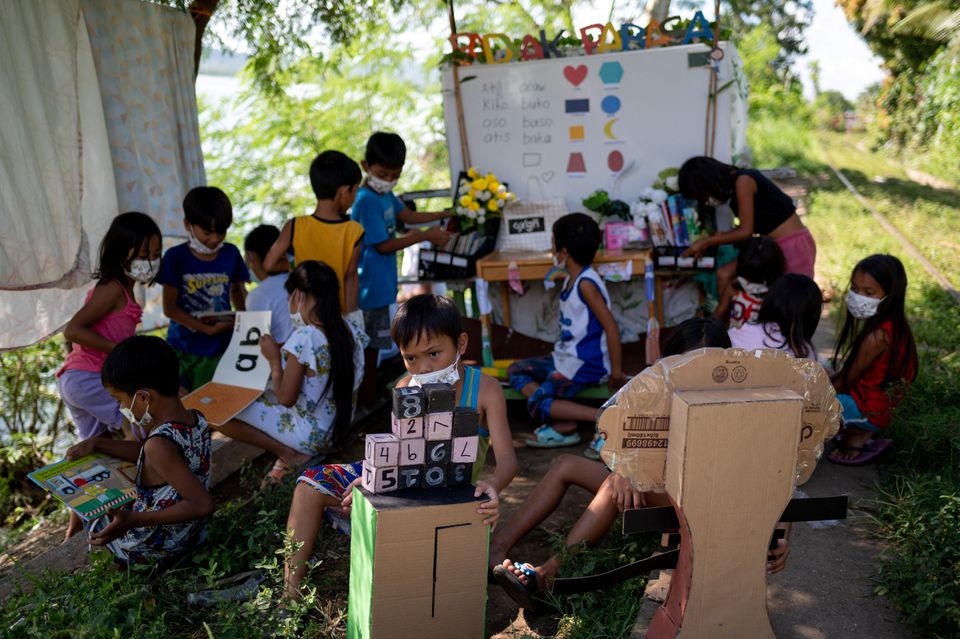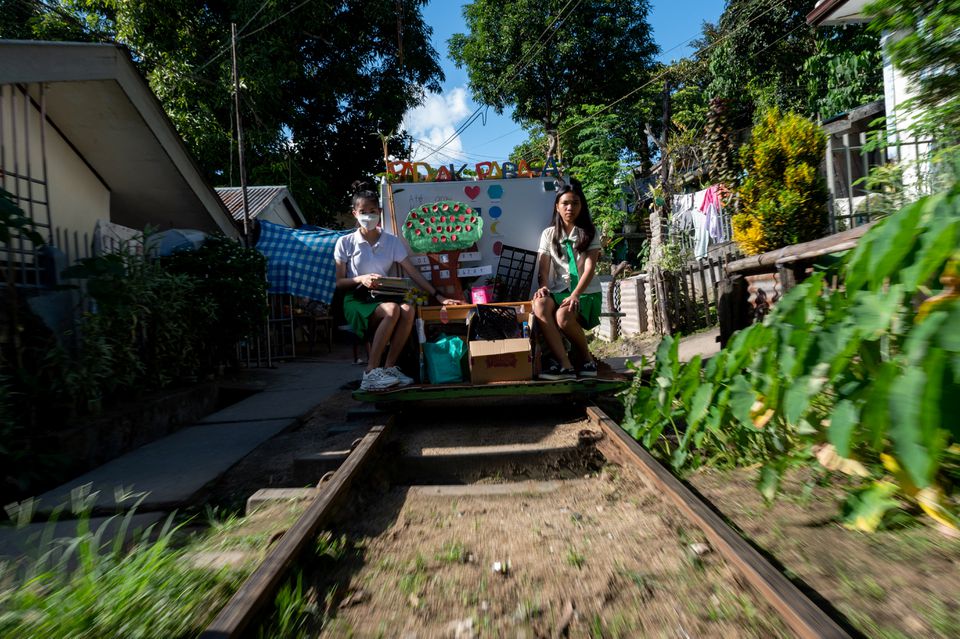A brightly decorated wooden trolley rumbles down a little-used rail track in the southern Philippines carrying four young teachers, two on the front and two in the back pushing it along with their feet.
Kitted out with a whiteboard, colourful charts, and a stack of books, the tiny, mobile school slides along from village to village three times a week, bringing education to impoverished children near the city of Tagkawayan as the COVID-19 pandemic keeps schools shut in much of the Southeast Asian archipelago.
"It's important that we do this, especially now that there is a pandemic and the children cannot do face-to-face learning," Shaira Berdin, one of nine volunteers who operate the trolley, said in an interview as kids crouched in the grass by the railway track, thumbing through English books.
Tagkawayan is a town of about 54,000 people in Quezon province located nearly 176 km (110 miles) southeast of Manila.
|
|
| Student volunteers teach children through their makeshift trolley which serves as a mobile library, near the railroad, in Tagkawayan, Quezon Province, Philippines, February 15, 2022. Photo: Reuters |
Remote learners in the Philippines have been challenged by a lack of computers, phones and internet, along with uneven education quality. Some children have had to climb onto roofs to get data signals.
Pushing the trolley like a scooter, the volunteers teach math and reading to over 60 children as they go. They started their initiative in November and have collected learning materials from donations to use for their classes.
While stopped, the teachers lift the trolley off the tracks, allowing the use of the whiteboard for spelling lessons, and then move on to counting using flashcards. This also keeps the tracks free for other users.
|
|
| Children select books from the makeshift trolley which serves as a mobile library, near the railroad, in Tagkawayan, Quezon Province, Philippines, February 15, 2022. Photo: Reuters |
"Most of these volunteers come from poor backgrounds. They've also experienced hardships in life, which is why they want to help children in need," said 26-year-old teacher Samboy de Leon Niala.
The Philippines gradually started a phased reopening of schools in November after a 20-month closure disrupted the education of nearly 27 million children.
The country has recorded more than 3.6 million COVID-19 cases and nearly 55,000 deaths overall. It reopened to tourists in February after the daily case count fell from a peak in September of more than 33,000 to about 1,500.
|
|
| Children read and learn through the makeshift trolley which serves as a mobile library, near the railroad, in Tagkawayan, Quezon Province, Philippines, February 15, 2022. Photo: Reuters |
|
|
| Student volunteers ride on their makeshift trolley which serves as a mobile library for children, in Tagkawayan, Quezon Province, Philippines, February 15, 2022. Photo: Reuters |



